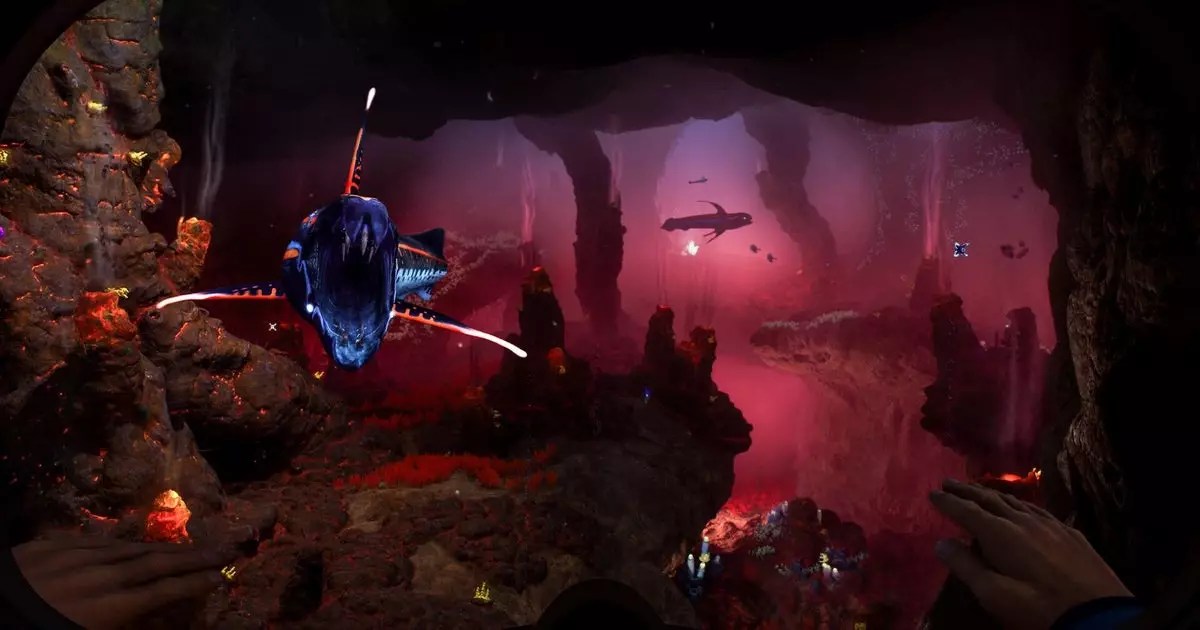The postponement of Subnautica 2 into 2026 signals more than just a strategic shift; it exposes the tumultuous undercurrents of corporate power, financial interests, and creative conflict. Krafton’s decision to delay a game that seemingly was ready for early access underscores a brutal reality within the gaming industry: sometimes, profit motives and contractual negotiations outweigh the enthusiasm and patience of dedicated fans and developers alike. The game’s immense popularity—being the second most wishlisted on Steam—only amplifies the controversy, as anticipation among players continues to build while the studio grapples with internal upheaval.
The core issue appears rooted not solely in development challenges but in a calculated effort to preserve financial bonuses and control over the game’s timing. The leaked report from Bloomberg hints at a strategic, if ruthless, move by Krafton to delay the project deliberately. This delay threatens to deprive the studio’s staff of a potential $250 million bonus, a figure significant enough to alter lives and influence morale. The fact that such a wealthy corporation would prioritize financial gain over the invested labor of passionate creators reveals a glaring ethical dilemma—one that raises questions about the true cost of blockbuster gaming.
Leadership Turmoil and Power Struggles
The strategic delay has coincided with a radical shakeup within Unknown Worlds, the studio behind Subnautica. The ousting of key figures, including co-founder Charlie Cleveland, suggests a clash of visions and control. Cleveland’s public statement about the game being “ready for early access” exposes a disconnect with Krafton’s narrative, which emphasizes delivering the “right game at the right time.” The firing of senior leadership and replacement with industry veteran Steve Papoutsis points to an underlying power struggle, with Krafton asserting dominance over the creative process.
This upheaval raises fundamental questions about the influence of major shareholders over smaller, innovative studios. When a publisher’s financial expectations come into conflict with a developer’s artistic progress, it often results in dissonance, confusion, and a loss of trust. Cleveland’s emotional reaction—that he no longer has control over a project he helped bring to life—illustrates the human cost of such corporate machinations. It’s a reminder that behind every milestone, there are individuals whose careers and passions are affected by decisions made in boardrooms.
The Toxic Culture of Gaming Industry Management
The interview snippets from Bloomberg reveal a troubling narrative: corporate executives prioritizing their own agendas over transparent communication and ethical standards. Papoutsis’s statement that the delay wasn’t specifically to impact bonuses suggests an disingenuous attempt to downplay financial motivations, but circumstances imply otherwise. When companies are caught in the act of delaying a product to maximize financial leverage or avoid bonus payouts, it erodes trust and tarnishes reputation.
Furthermore, the industry’s overarching obsession with timelines and monetary incentives fosters a culture where the quality and readiness of a game are sidelined in favor of meeting market expectations or shareholder demands. The fallout from such decisions can be devastating not just for employees but also for players who eagerly await a polished product. The dissonance between the studio’s perception of the game’s readiness and Krafton’s strategic delay exemplifies a larger systemic problem: the commodification of creativity under the guise of corporate growth.
Implications for the Future of Game Development
This episode with Subnautica 2 serves as a stark warning for developers and players alike. When financial interests overshadow creative integrity, the entire industry risks losing credibility and passion. The unrealized potential of a highly anticipated sequel not only disappoints fans but also undermines trust in publishers and studios that seem increasingly disconnected from their communities.
The ongoing power struggle indicates a shift in industry dynamics—where big corporations wield their influence to shape not only game release schedules but also the future of studio leadership. If such practices become normalized, we may see a decline in innovative, passionate projects and an increase in corporate-controlled mediocrity. For consumers, this underscores the importance of holding publishers accountable and demanding transparency; for developers, it highlights the vital need to protect creative independence against overwhelming corporate interests.
Ultimately, the delayed launch of Subnautica 2 isn’t just about a game missing a window—it’s a mirror reflecting the complex, often toxic, relationship between corporate power and creative freedom in the modern gaming landscape. Whether this will lead to more ethical practices or further entrench corporate dominance remains to be seen, but one thing is clear: the stakes are higher than ever.


Leave a Reply